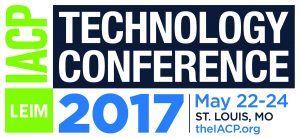Over the course of three weeks in August and September 2016, the IACP conducted a series of critical issues forums in eight cities throughout the United States to gain a better understanding of the critical issues facing law enforcement today.1 More than 450 leaders, representing small, midsize, large, state, provincial, federal, tribal, and college and university agencies, had the opportunity to share the challenges and concerns they face, as well as the solutions some have developed in response to such challenges. Despite the diversity in agency type, size, and location—and the distinct challenges each faced, several general areas were identified by the leaders as being some of the biggest challenges they faced—one of those common topic areas was technology.
 Technology has become increasingly critical for day-to-day law enforcement operations and no longer exists in its own silo. From body-worn cameras (BWCs) and closed circuit televisions (CCTVs) to digital evidence collection and the use of community informatics to identify traffic flow trends, new and innovative technologies have the ability to better protect law enforcement officers, to increase the efficiency and efficacy of investigations, and to improve public safety for the community overall. But managing, maintaining, and keeping up with technological advancements create their own set of challenges for law enforcement agencies.
Technology has become increasingly critical for day-to-day law enforcement operations and no longer exists in its own silo. From body-worn cameras (BWCs) and closed circuit televisions (CCTVs) to digital evidence collection and the use of community informatics to identify traffic flow trends, new and innovative technologies have the ability to better protect law enforcement officers, to increase the efficiency and efficacy of investigations, and to improve public safety for the community overall. But managing, maintaining, and keeping up with technological advancements create their own set of challenges for law enforcement agencies.
For example, while the footage captured by BWCs and other video technologies can provide valuable information, the management and storage of the data can also pose significant cost and privacy challenges. In addition, advancements in technology often rapidly outpace standards and laws, making it challenging for law enforcement to obtain critical evidence.
IACP Technology Conference, Sponsored by the LEIM Section
Every year since 1977, the IACP has hosted the premier law enforcement technology conference, providing attendees with an opportunity to learn new skills and to find out about best practices and lessons learned, trends in the field, and the latest in cutting-edge technology from their peers and industry experts. The conference also provides an opportunity to network with fellow practitioners from around the world.
But as technology evolves, so too must the conference. This year, the IACP Law Enforcement Information Management Training Conference and Technology Exposition becomes the IACP Technology Conference, updated to reflect the evolving landscape of law enforcement technology.
The 2017 IACP Technology Conference will convene May 22–24, 2017, in St. Louis, Missouri. Each year, the conference welcomes 500–600 attendees from law enforcement and government agencies, public safety nonprofits, academia, and the private sector. The three-day event features 3 plenary sessions, 30 workshops, and an exhibit floor showcasing innovative applications of technology designed to improve officer and public safety, enhance the efficiency and effectiveness of operations, and build enterprise-wide information sharing capabilities.
Why do attendees return to the conference year after year? Law enforcement practitioners attending the conference have consistently identified the following five key benefits of attending the conference:
- Networking opportunities with other agencies and practitioners
- Networking opportunities with industry-leading solution providers
- Substantive workshops with practical, relevant content
- Excellent speakers and exceptional facilities
- New insights and knowledge to help address operational issues at home
Moreover, the conference provides a forum in which attendees can learn new techniques, advance their knowledge and careers, and equip their agencies for ongoing success.
The theme of this year’s conference is “Smart Communities = Safe Communities.” The conference theme builds upon the smart cities concept of integrating multiple information and communication solutions to enhance the quality, performance, and interactivity of law enforcement services. Other areas the theme touches on include the reduction of costs and resource requirements and improved contacts between community members and government, regardless of agency or community type.
Kicking off the IACP Technology Conference will be three plenary sessions with topics that embody the event’s theme. The first plenary session, entitled “The Evolution of Policing—Key Findings from the IACP Listening Tour and Technology Implications,” will focus on the major challenges identified by law enforcement leaders during the tour and their impact on technology, as well as the impact that technology can have on those challenges. The second plenary session, “The Evolution of Police Technology—Past, Present, and Future,” will look back at just how far the field has come and look ahead to what is coming next. The final plenary session, “Police Information—Systems, Metrics, Transparency, and Privacy,” will highlight the importance of data and how they can be used and shared while considering privacy and related issues.
Building on the plenary sessions, the conference workshops will cover a broad array of new and emerging technologies and technology-related issues, policies, and practices, including BWC, unmanned aerial vehicles, information and data sharing initiatives, cybersecurity, digital evidence, social media, and many others. Presenters will share how these technologies and others can increase the efficiency and effectiveness of policing. In addition, panelists will discuss issues like the proliferation of technology into everyday, mundane objects—such as, the Internet of Things—and the impact that these new and nontraditional sources of digital evidence can have on investigations. Finally, workshops will also include implementation tips and lessons learned and discussions on data management considerations and the importance of protecting law enforcement and other government information systems.
The full conference program can be viewed at www.theIACP.org/techagenda.
To aid attendees in selecting which workshops to attend, the IACP Technology Conference educational program is organized into three tracks: Executive, Operational, and Technical. Sessions in the Executive Track include high-level discussions about the policy, operational, and legal considerations an agency should evaluate when implementing or managing a technology program. The Operational Track focuses on planning, implementing, and managing technology projects. Sessions in the Technical Track will cover the technical side of projects, including data sharing, encryption, hardware, software, and much more.
For more information about the conference, please visit www.theIACP.org/tech-conference.
Note:
1The full report from the listening tour is available at www.theiacp.org/listeningtour.



